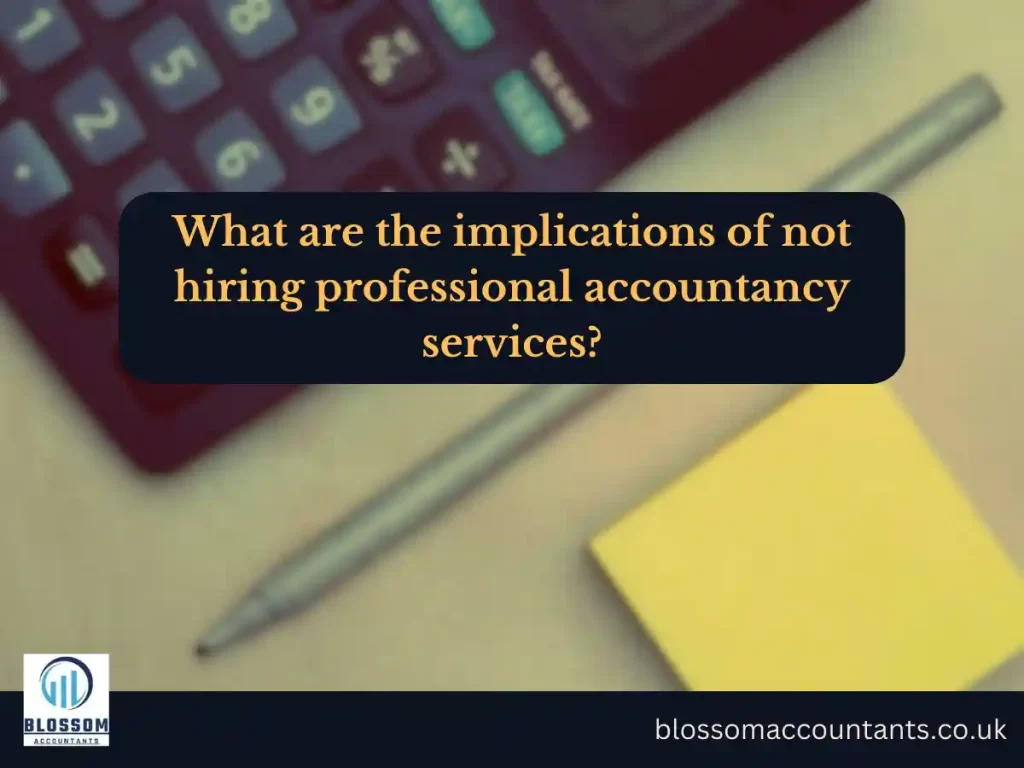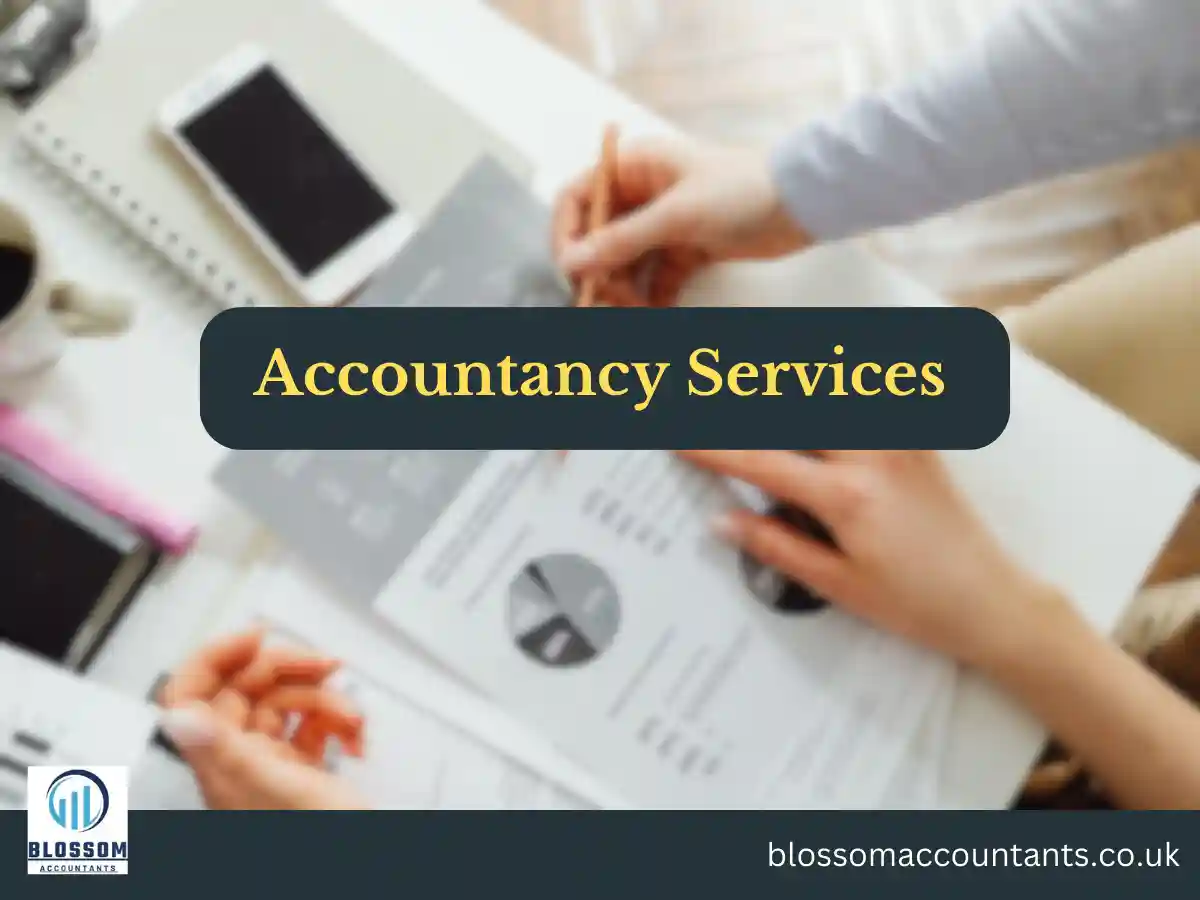Accountancy is essential for organizations and people in the UK to guarantee effective financial management, compliance with tax legislation, and correct reporting. Accountancy services cover a wide variety of tasks, from bookkeeping and tax preparation to financial analysis and strategic planning.
In this post, we will look at a wide range of accountancy services accessible in the UK, highlighting their essential features and benefits. In addition, we will go through the pricing structure of these services, giving you an idea of the average costs associated with engaging an accountant.
Table of Contents
What are the common accountancy services offered in the UK?
Bookkeeping:
Recording financial transactions, maintaining ledgers, and preparing financial statements.
Tax preparation and planning:
Assisting with tax return filing, ensuring compliance with tax laws, and offering tax planning strategies.
Payroll services:
Managing employee payroll, calculating deductions, and ensuring compliance with payroll regulations.
Financial statement preparation:
Compiling and analyzing financial statements, such as income statements, balance sheets, and cash flow statements.
Auditing:
Conducting independent reviews of financial records to ensure accuracy and compliance with auditing standards.
Management accounting:
Providing financial insights and analysis to support strategic decision-making within an organization.
Business advisory services:
Offering guidance and advice on various financial and operational aspects of a business.
VAT registration and returns:
Assisting with VAT registration and ensuring accurate and timely submission of VAT returns.
Company formation and registration:
Assisting with the process of setting up a new company and registering it with the appropriate authorities.
Self-assessment tax returns:
Helping individuals complete and file their self-assessment tax returns accurately.
How are accountancy services priced in the UK?
Accounting services can be expensive based on criteria such as the complexity of the responsibilities involved, the size of the business, the amount of expertise required, and the location of the accounting firm. Accountants generally bill on an hourly or fixed fee basis for specific services. Based on the accountant’s level of experience and location, hourly fees might range from £20 to £200 or more. Fixed fees are frequently charged for fundamental services like tax preparation or bookkeeping.
While the cost of accounting services varies based on a number of factors, including the complexity of the duties and the location of the accounting company, the following is a broad overview of the usual price for popular accounting services in the UK:
Bookkeeping:
Hourly rates: £20 to £40 per hour
Monthly fixed fee: £100 to £300 per month, based on transaction volume and complexity
Tax preparation and planning:
Self-assessment tax return: £150 to £500 per return, depending on complexity
Corporate tax return:
£500 to £2,000 per return, based on business size and complexity
Tax planning and advice: Hourly rates ranging from £100 to £250
Payroll services:
Monthly fixed fee: £30 to £150 per month, depending on the number of employees and payroll complexity
Financial statement preparation:
Year-end financial statements: £500 to £2,000 per set of statements, based on business size and complexity
Auditing:
External audit: £2,000 to £10,000 per audit, depending on the size and complexity of the business
Management accounting:
Monthly or quarterly fixed fee: £200 to £1,000 per month, based on the level of analysis and reporting required
Business advisory services:
Hourly rates: £100 to £300 per hour, depending on the expertise and experience of the advisor
Monthly or project-based fees:
£500 to £5,000, depending on the scope of the advisory services
VAT registration and returns:
One-time registration fee: £100 to £300
Quarterly VAT return preparation: £50 to £200 per return
Company formation and registration:
Company formation: £50 to £200, excluding government fees
Annual confirmation statement filing: £50 to £150 per filing
Self-assessment tax returns:
£100 to £500 per return, depending on complexity and individual circumstances
It is crucial to note that these are broad pricing ranges; the real cost may vary depending on factors such as your company’s unique needs, the size of the accounting firm, and the accountant’s level of knowledge and experience. To receive a more accurate idea of cost specific to your business needs, seek detailed quotations from various accounting companies and discuss the extent of services.
What factors can influence the cost of accountancy services?
Complexity:
The cost is affected by the complexity of the financial data and the procedures required. Accounting for more sophisticated firms may need more effort and skill.
Business size:
Larger businesses with higher transaction volumes and more extensive financial operations may require more resources, resulting in higher fees.
Additional services:
If additional services beyond standard bookkeeping and tax preparation are required, such as financial analysis or strategic planning, they may incur additional costs.
Level of expertise:
Highly experienced and specialized accountants may charge higher rates for their services compared to less experienced professionals.
Location:
Accountancy service rates may vary depending on the location. Accountants in larger cities or high-cost areas may have higher fee structures compared to those in smaller towns or rural areas.

Can accountancy services be tailored to specific business needs?
Yes, accounting services may be tailored to a company’s unique requirements. Accountants collaborate closely with customers to understand their needs and give customized answers to their specific financial difficulties.
How can businesses find reputable accountancy service providers in the UK?
Businesses can find reputable accountancy service providers through various channels, including:
Referrals:
Seek recommendations from other business owners, colleagues, or professional networks.
Online directories:
Utilize online directories and platforms that list qualified accountants and their services.
Professional associations:
Consult professional associations such as the Institute of Chartered Accountants in England and Wales (ICAEW) or the Association of Chartered Certified Accountants (ACCA) for a list of registered accountants.
Online reviews:
Read online reviews and testimonials to gain insights into the reputation and quality of service provided by different accountants.
What are the potential benefits of hiring professional accountancy services?
Accuracy and compliance:
Professional accountants ensure accurate financial record-keeping and help businesses comply with tax and regulatory requirements.
Time-saving:
Outsourcing accounting tasks allows business owners to focus on core operations, saving time and effort.
Financial insights:
Accountants provide valuable financial insights and analysis, enabling informed decision-making and strategic planning.
Cost efficiency:
Well-managed finances can result in cost savings and improved financial efficiency.
Business growth:
Accountants can provide guidance and support to help businesses grow and expand.

Are accountancy services tax-deductible expenses?
Accounting services connected to company activity are often deductible costs. To guarantee compliance with tax rules and regulations, however, it is necessary to contact with an accountant or tax counselor.
Can accountants assist with tax planning and minimizing tax liabilities?
Yes, accountants play an important role in tax planning, assisting firms in optimizing their tax positions and identifying possibilities for tax liability reduction. They remain up to date on the current tax rules and offer tax-cutting techniques
What are the implications of not hiring professional accountancy services?
Not hiring professional accountancy services can lead to various risks, including:
Inaccurate financial records:
DIY accounting may result in errors, leading to inaccurate financial reporting and potential compliance issues.
Missed tax deductions and credits:
Without proper expertise, businesses may overlook eligible deductions and credits, leading to higher tax liabilities.
Compliance issues:
Failure to comply with tax regulations can result in penalties and legal consequences.
Financial inefficiencies:
Inefficient financial management may lead to missed opportunities for cost savings and growth.

How can businesses ensure a successful relationship with their accountants?
Clear communication:
Maintain open and regular communication with your accountant, providing them with the necessary information and promptly addressing any questions or concerns.
Collaboration:
Work collaboratively with your accountant, sharing insights and goals to ensure they have a comprehensive understanding of your business.
Timely provision of information:
Provide all relevant financial information and documentation to your accountant in a timely manner, allowing them to perform their duties efficiently.
Regular reviews:
Schedule regular meetings or reviews with your accountant to assess financial performance, discuss goals, and plan for the future.
Conclusion Pricing of Accountancy Services in UK
Accountancy services in the United Kingdom cover a wide variety of duties and responsibilities that are necessary for good financial management. Accountants assist firms maintain accurate financial records, comply with tax requirements, and make educated choices by providing services ranging from accounting and tax preparation to financial analysis and business advice services. Accountancy services are priced differently depending on characteristics such as complexity, business size, and location. Using expert accountants provides various advantages, such as precise financial reporting, tax planning, and increased financial efficiency. To achieve solid financial management, firms must carefully examine their accounting needs and select reliable and skilled accounting service providers.

